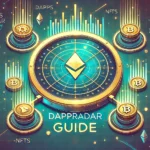– Ad –
| Getting your Trinity Audio player ready... |
In the first half of 2025, global crowdfunding platforms raised $17.6 billion, with over 12% of that funded through cryptocurrencies, a figure that’s grown 4x since 2022.
Source: Statista & CoinDesk Crowdfunding Analysis Report 2025
That’s not a trend. That’s a tidal shift. And if you’re a builder, a creator, or just someone tired of gatekeepers throttling innovation, crypto crowdfunding is where you step in. Let’s break down what’s happening and how you can get involved.
What is Crypto Crowdfunding?
Crypto crowdfunding uses blockchain and digital assets (like ETH, USDT, or even NFTs) to raise money from a global audience. Think of it as Kickstarter, but without banks, borders, or middlemen taking a slice of your dreams.
No approvals. No endless paperwork. Just a wallet, a pitch, and a community that believes in you.
Now pair that with smart contracts, automated agreements on the blockchain, and suddenly, the entire process becomes transparent, programmable, and damn near trustless.
How does crypto crowdfunding work?
Simple version? Here’s the flow:
- A project launches a fundraising campaign on a crypto crowdfunding platform
- Contributors send funds in crypto (ETH, BTC, USDT)
- In return, they might receive utility tokens, NFTs, or even tokenized equity
- All of it is tracked and enforced by code, and smart contracts make sure no funny business happens
It’s peer-to-peer, instant, and trustless. That’s the power of blockchain.
Why it’s Blowing up in 2025
Traditional crowdfunding has issues. High platform fees. Country restrictions. Delayed payouts. Oh, and banks that randomly flag your money.
Crypto flips that. Here’s how:
- Global by default: No banking required. If you’ve got a wallet, you’re in.
- Lower fees: Many crypto fundraising platforms take minimal cuts or none at all.
- Tokenized perks: Instead of just T-shirts and mugs, you can issue utility tokens, governance rights, or equity.
- Instant transparency: Anyone can audit where the funds go. Try doing that with a bank wire.
Real Use Cases: From Indie Games to DAOs
Crypto crowdfunding isn’t some abstract concept. It’s already funding real things in 2025:
- GameFi & Indie Games: Studios are pre-selling game tokens to raise development funds
- DAOs & Protocols: Launching community-owned networks with token sales
- Creative Projects: Musicians and artists offering NFTs as early access or ownership stakes
- Startups: Providing actual equity through crypto-based crowdfunding platforms like Fairmint or Untangled.
If you’ve got a vision, crypto gives you tools to fund it, without the gatekeepers.
Also Read: Crypto Airdrops: How to Find and Qualify for Free Token Giveaways
What to watch out for?
Crypto isn’t a perfect solution; it brings its own challenges:
- Regulatory Uncertainty: What’s legal in one country might be illegal in another
- Volatility: Raise in ETH, and the price tanks tomorrow? Risk is real
- Security: Smart contracts can be hacked, and wallets can be phished
- Scams & Trust Issues: Too many rug pulls have made contributors cautious
Use trusted platforms, audit your code, and don’t skip legal advice.
So, What’s Your Move?
If you’ve ever thought, “I just need capital and a way to reach real supporters without kissing up to VCs,” crypto crowdfunding is calling your name.
The tools are ready. The audience is hungry. And the world is warming up to tokenized everything.
Don’t just watch this shift. Build in it.
Got questions? Hit the comments. Looking for a guide to start your first crowdfunding campaign? Subscribe to the newsletter, we’ve got a full breakdown coming next week.
FAQs
Is crypto crowdfunding legal?
Depends on your country. In the US or EU, equity-based models require compliance. Utility-based token sales? Often still a gray area. Always consult a lawyer.
How do I launch a crypto crowdfunding campaign?
Start by choosing a platform like Juicebox, Coinstarter, or Launchpad. Define your tokenomics, set smart contract rules, and promote to your Web3 audience.
Is it better than traditional crowdfunding?
If you want global reach, real-time payouts, and programmable incentives, yes. But if your audience isn’t crypto-native, you may need a hybrid model.


















